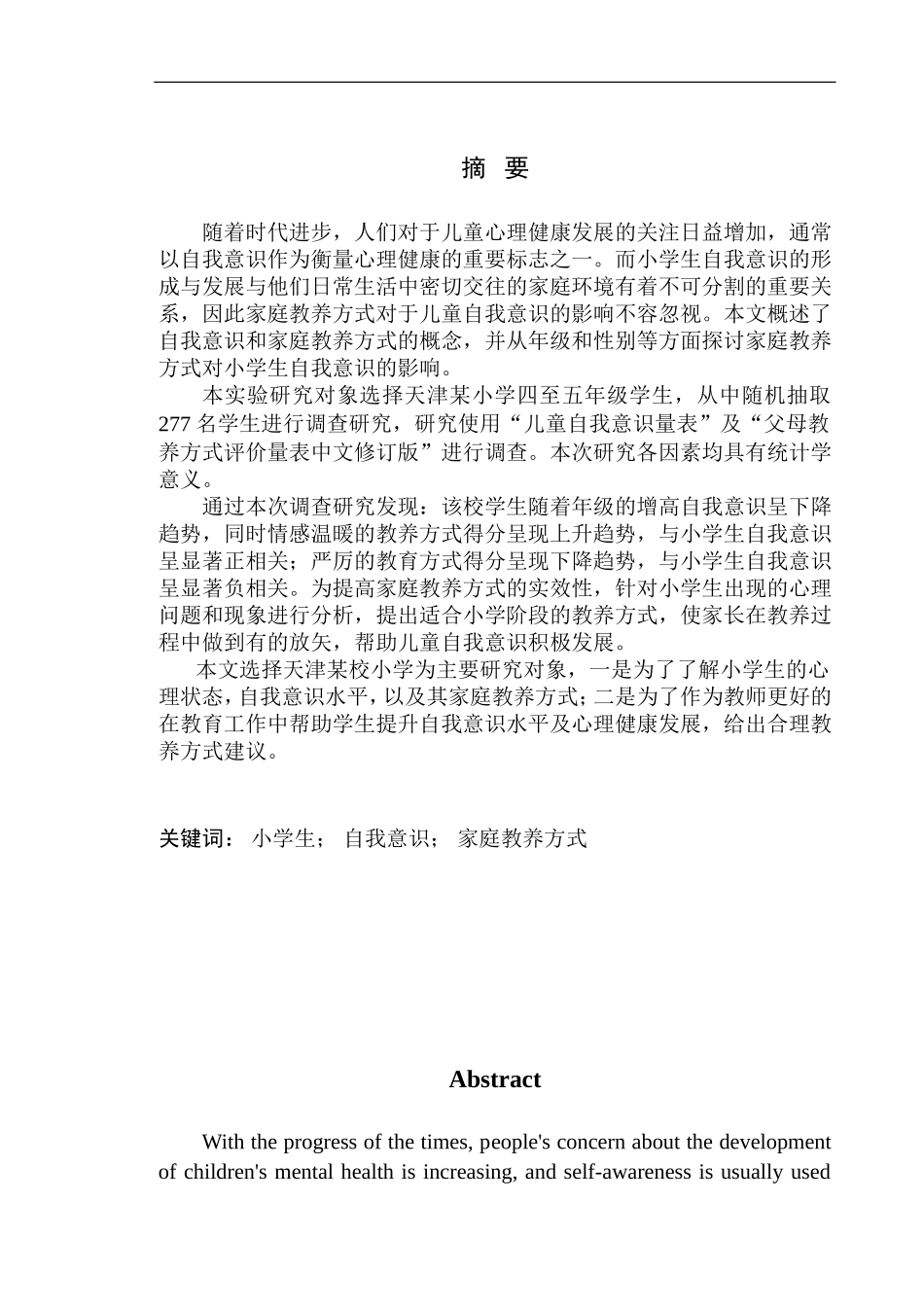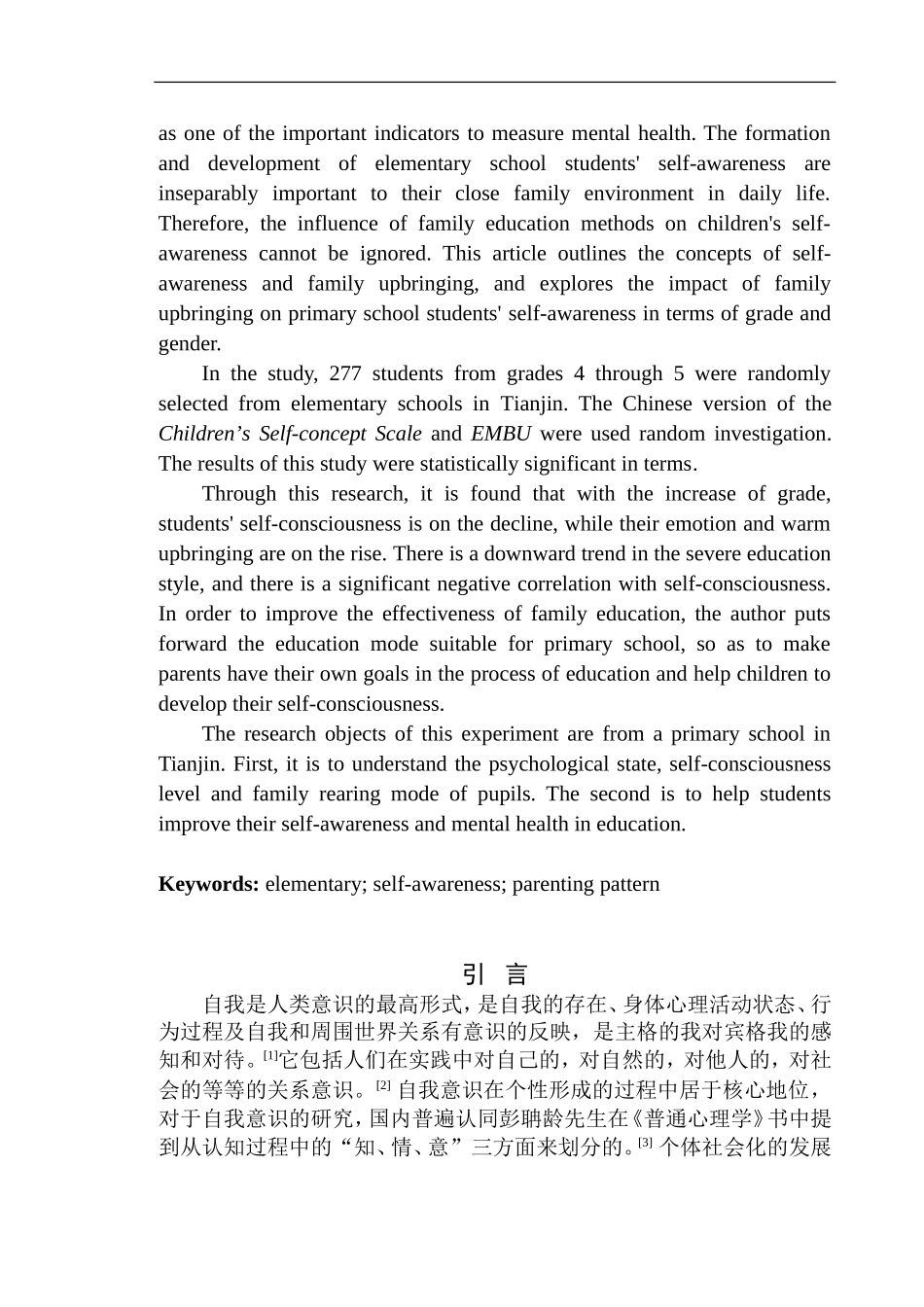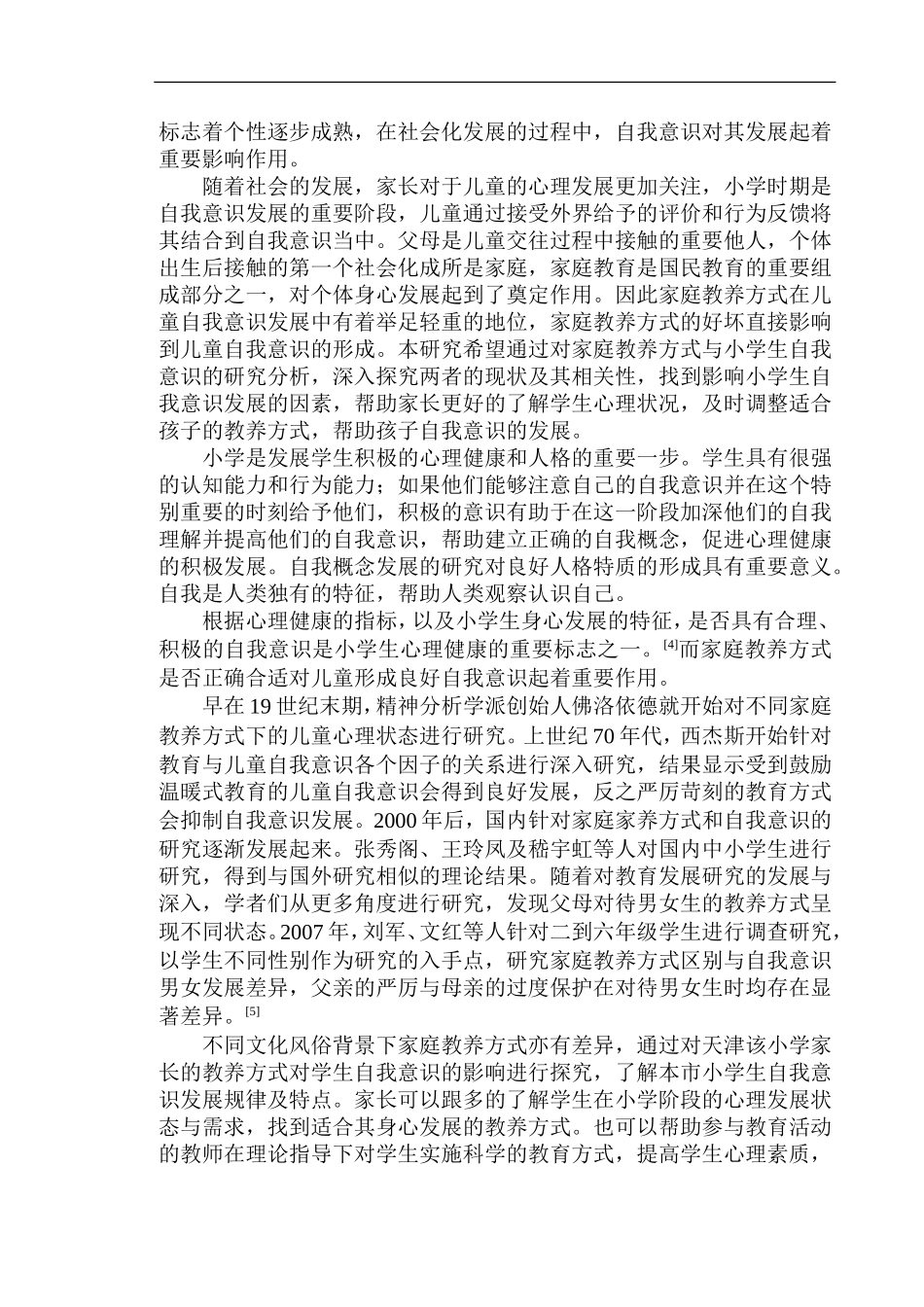摘 要随着时代进步,人们对于儿童心理健康发展的关注日益增加,通常以自我意识作为衡量心理健康的重要标志之一。而小学生自我意识的形成与发展与他们日常生活中密切交往的家庭环境有着不可分割的重要关系,因此家庭教养方式对于儿童自我意识的影响不容忽视。本文概述了自我意识和家庭教养方式的概念,并从年级和性别等方面探讨家庭教养方式对小学生自我意识的影响。本实验研究对象选择天津某小学四至五年级学生,从中随机抽取277 名学生进行调查研究,研究使用“儿童自我意识量表”及“父母教养方式评价量表中文修订版”进行调查。本次研究各因素均具有统计学意义。通过本次调查研究发现:该校学生随着年级的增高自我意识呈下降趋势,同时情感温暖的教养方式得分呈现上升趋势,与小学生自我意识呈显著正相关;严厉的教育方式得分呈现下降趋势,与小学生自我意识呈显著负相关。为提高家庭教养方式的实效性,针对小学生出现的心理问题和现象进行分析,提出适合小学阶段的教养方式,使家长在教养过程中做到有的放矢,帮助儿童自我意识积极发展。本文选择天津某校小学为主要研究对象,一是为了了解小学生的心理状态,自我意识水平,以及其家庭教养方式;二是为了作为教师更好的在教育工作中帮助学生提升自我意识水平及心理健康发展,给出合理教养方式建议。关键词: 小学生; 自我意识; 家庭教养方式AbstractWith the progress of the times, people's concern about the development of children's mental health is increasing, and self-awareness is usually used as one of the important indicators to measure mental health. The formation and development of elementary school students' self-awareness are inseparably important to their close family environment in daily life. Therefore, the influence of family education methods on children's self-awareness cannot be ignored. This article outlines the concepts of self-awareness and family upbringing, and explores the impact of family upbringing on primary school students' self-awareness in terms of grade and gender.In the study, 277 students from grades 4 through 5 were randomly selected from elementary schools in Tianjin...


